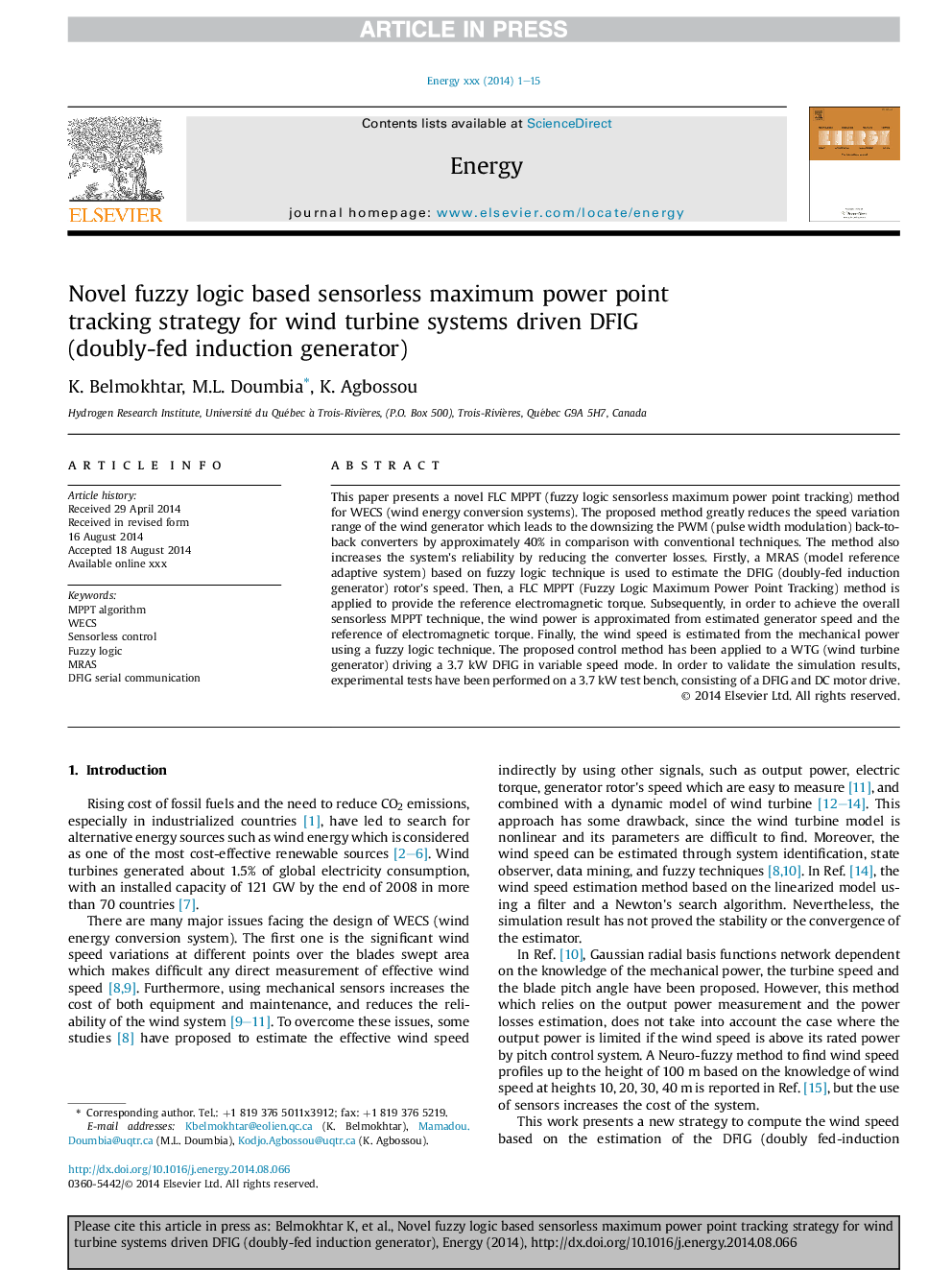| Article ID | Journal | Published Year | Pages | File Type |
|---|---|---|---|---|
| 8076912 | Energy | 2014 | 15 Pages |
Abstract
This paper presents a novel FLC MPPT (fuzzy logic sensorless maximum power point tracking) method for WECS (wind energy conversion systems). The proposed method greatly reduces the speed variation range of the wind generator which leads to the downsizing the PWM (pulse width modulation) back-to-back converters by approximately 40% in comparison with conventional techniques. The method also increases the system's reliability by reducing the converter losses. Firstly, a MRAS (model reference adaptive system) based on fuzzy logic technique is used to estimate the DFIG (doubly-fed induction generator) rotor's speed. Then, a FLC MPPT (Fuzzy Logic Maximum Power Point Tracking) method is applied to provide the reference electromagnetic torque. Subsequently, in order to achieve the overall sensorless MPPT technique, the wind power is approximated from estimated generator speed and the reference of electromagnetic torque. Finally, the wind speed is estimated from the mechanical power using a fuzzy logic technique. The proposed control method has been applied to a WTG (wind turbine generator) driving a 3.7Â kW DFIG in variable speed mode. In order to validate the simulation results, experimental tests have been performed on a 3.7Â kW test bench, consisting of a DFIG and DC motor drive.
Related Topics
Physical Sciences and Engineering
Energy
Energy (General)
Authors
K. Belmokhtar, M.L. Doumbia, K. Agbossou,
